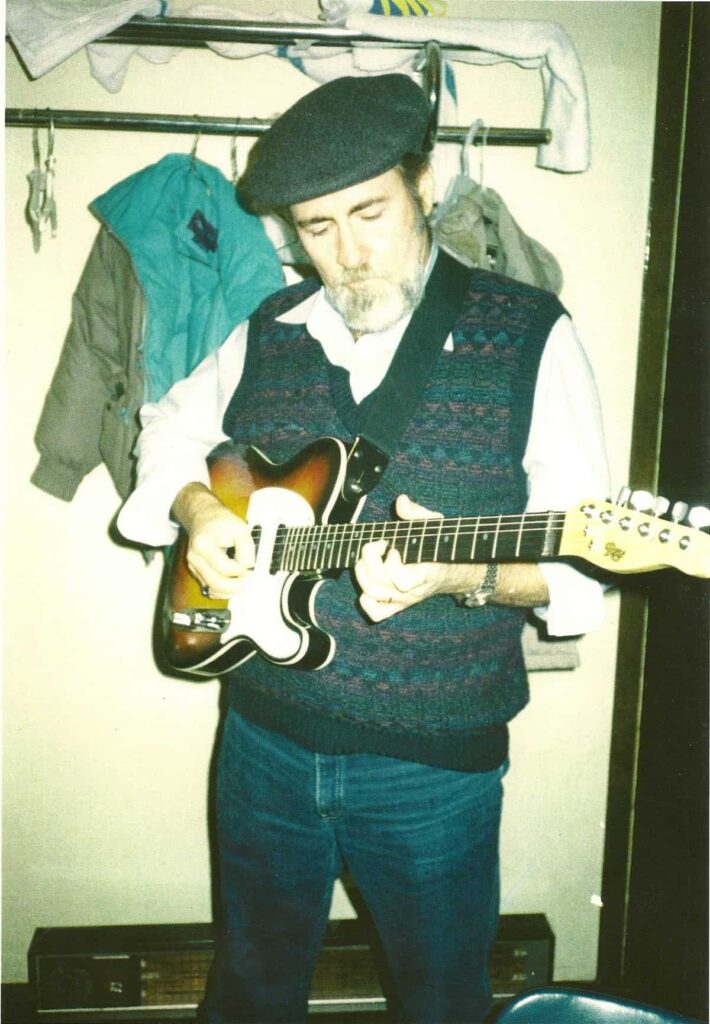
An Instrumental Expression of a Soul’s Weary Journey
In the pantheon of guitar gods, a peculiar and revered place is held for Roy Buchanan, a man who, despite never reaching the commercial superstardom of his peers, became a legend to those who truly listened. He was, as the title of a 1971 PBS documentary proclaimed, “The Best Unknown Guitarist in the World.” Buchanan was a virtuoso who spoke not with words, but with the searing, crying voice of his Fender Telecaster. One of his most profound and moving conversations with that instrument is the instrumental track “Wayfaring Pilgrim,” a dark and haunting adaptation of the traditional American folk and spiritual song, “Wayfaring Stranger.” While it never charted as a single, the song became a cornerstone of his live performances and a powerful testament to his unique artistry, appearing on his 1974 album, In the Beginning.
The story behind this particular piece is intertwined with the story of the man himself—a journeyman guitarist who wrestled with fame, inner demons, and a profound, almost spiritual connection to his music. The original folk tune speaks of a lonely soul on a journey through life, a “poor wayfaring stranger” who knows no sorrow or pain is too much to bear as they travel toward a home “over Jordan.” Buchanan’s rendition, however, transforms this simple, vocal spiritual into a deeply personal narrative. He wasn’t just playing a song; he was baring his soul. The guitar becomes the protagonist, the “wayfaring pilgrim” itself, wandering through a desolate landscape of sound, full of lonesome bends and aching sustained notes.
What makes Buchanan’s performance so captivating is his masterful use of dynamics and his trademark techniques. He was a pioneer of the “pinch harmonic,” a way of making the guitar squeal with a high-pitched, almost human-like cry. He would manipulate his volume and tone knobs to create a faux wah-wah effect, making the music swell and recede like a tidal wave of emotion. These aren’t just technical flourishes; they are the vocabulary of a man expressing the inexpressible. The song’s slow, deliberate pace feels like a weary walk, each note a heavy step on a long and difficult road.
For those of us who came of age with the wail of a Telecaster as the soundtrack to our lives, “Wayfaring Pilgrim” is more than just a song. It’s a memory, a feeling, a moment frozen in time. It brings to mind dusty album covers, the hiss and pop of vinyl, and the quiet reverence of listening to a musician who didn’t play for the charts, but for the sheer, unadulterated love of the instrument. It’s the sound of a man who found his voice in the one place he felt most at home: in the hands of his guitar, letting the music tell a story that words could never fully capture. The emotional weight of the song feels even heavier when you consider Buchanan’s tragic end, and in retrospect, the title takes on a chilling, prophetic quality. His music, especially a piece like “Wayfaring Pilgrim,” serves as a poignant epitaph—a beautiful, mournful, and enduring legacy of a soulful artist who was, in his own way, always on his way home.